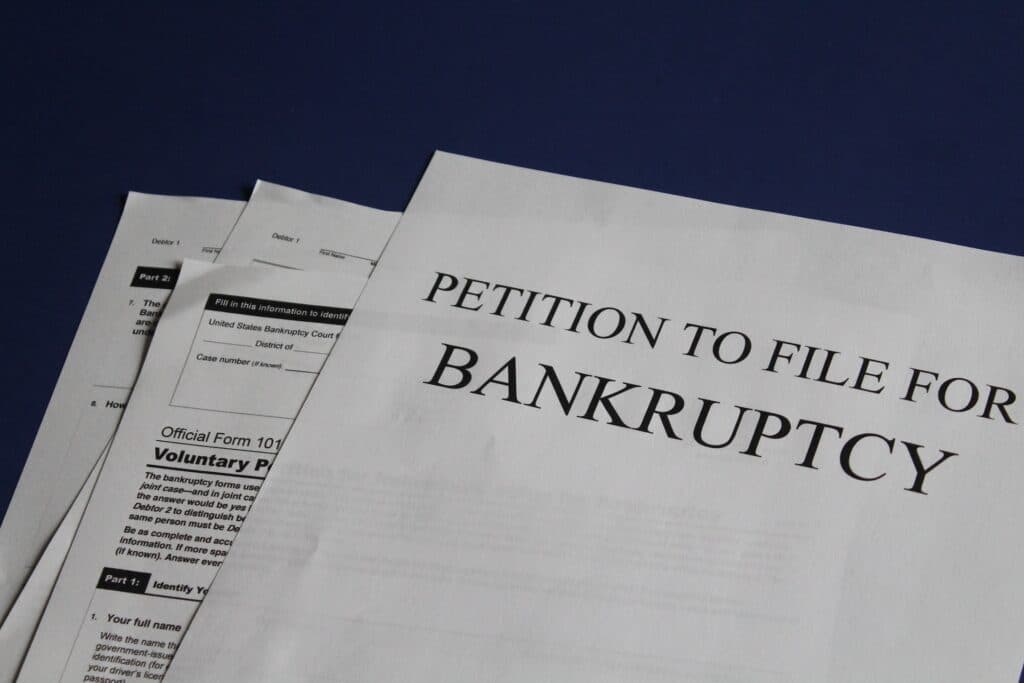
If you owe taxes and are considering filing bankruptcy, it’s crucial to understand how income tax debt is treated in bankruptcy. While declaring bankruptcy can provide relief from some debts, not all debts can be discharged, including tax debts. However, it is still possible to discharge some tax debts through bankruptcy. If you’re interested in learning more about how to go about doing this, then we’ve got just the thing for you. Here’s everything that you need to know about discharging tax debt when you’ve filed for bankruptcy.
What Are the Different Types of Tax Debt?
There are two types of tax debt: priority tax debt and non-priority tax debt. Priority tax debts are taxes that are not dischargeable in bankruptcy. Examples of priority tax debts include taxes owed from the most recent tax year, taxes that were due in the last three years, taxes that were assessed within the last 240 days, and taxes that were not filed on time.
On the other hand, non-priority tax debts are taxes that may be dischargeable in bankruptcy. Examples of non-priority tax debts include taxes owed from tax years that are more than three years old and taxes that were filed on time.
Filing for Bankruptcy: What’s the Difference Between Chapter 7 and Chapter 13 Bankruptcy?
There are two types of bankruptcy that individuals can file: Chapter 7 and Chapter 13. Chapter 7 bankruptcy is also known as a “liquidation bankruptcy” because it involves selling off assets to pay off creditors. Chapter 13 bankruptcy, on the other hand, involves creating a payment plan to pay off creditors over a period of three to five years.
How Does Discharging Tax Debt Work for Chapter 7 Bankruptcy?
If you file for Chapter 7 bankruptcy, you may be able to discharge some of your tax debts. However, to do so, you must meet the criteria. For example, the tax debt must be at least three years old, the income tax return must have been filed on time, and the IRS must not have assessed the tax debt within the past 240 days.
It’s important to note that not all tax debts can be discharged in Chapter 7 bankruptcy. As mentioned earlier, priority tax debts are not dischargeable in bankruptcy. Additionally, if the IRS has filed a tax lien against you, the lien will remain in place even after your bankruptcy is discharged.
How Does Discharging Tax Debt Work for Discharging Tax Debt in Chapter 13 Bankruptcy?
If you file for Chapter 13 bankruptcy, you may be able to discharge some of your tax debts as well. However, the process is different than in Chapter 7 bankruptcy. Instead of discharging the debt outright, you will create a payment plan to pay off the debt over a period of three to five years.
The amount you will be required to pay will depend on several factors, including the amount of your income and expenses, the value of your non-exempt assets, and the amount of your non-priority tax debt.
It’s important to note that even if you are unable to discharge all of your tax debt through bankruptcy, filing for bankruptcy can still provide significant relief. For example, it can prevent the IRS from garnishing your wages, freezing your bank accounts, or taking other collection actions against you.
Filing Bankruptcy: How Can a Bankruptcy Lawyer Help?
A bankruptcy lawyer can help in discharging tax debt by guiding individuals through the complex legal process in their bankruptcy case. They have expertise in navigating bankruptcy laws and can analyze the client’s financial situation to determine eligibility for discharge. Additionally, they can negotiate with the IRS on behalf of the client to establish a repayment plan or propose an offer in compromise. By leveraging their knowledge and experience, a bankruptcy lawyer can help individuals alleviate the burden of tax debt and find a fresh financial start. A bankruptcy lawyer can also help represent an individual in the bankruptcy court.
Conclusion
While tax debt is generally not dischargeable in bankruptcy, it is still possible to discharge some tax debts through Chapter 7 or Chapter 13 bankruptcy. However, the process can be complicated. If you are considering filing for bankruptcy, it’s important to consult with an experienced bankruptcy attorney. A bankruptcy attorney can help you determine whether bankruptcy is the right option for you and can guide you through the process.
If you require business bankruptcy services in NYC, the Law Offices of Stephen B. Kass, P.C. can help. Our experienced team of tax attorneys and CPAs provide tax settlement, IRS negotiation, and business bankruptcy services. Contact us today to schedule a consultation!







